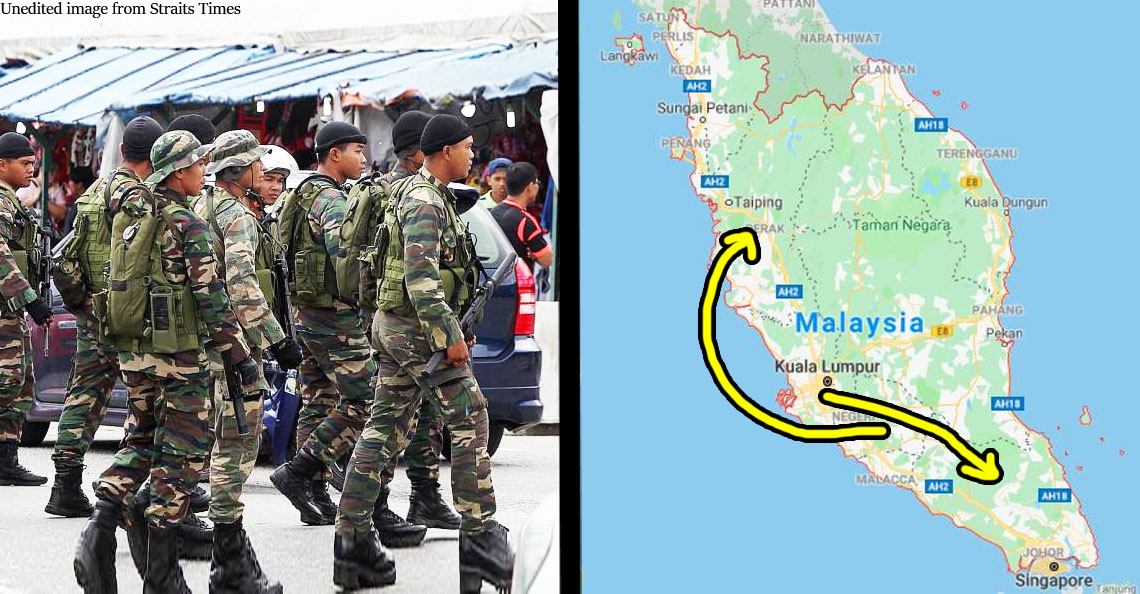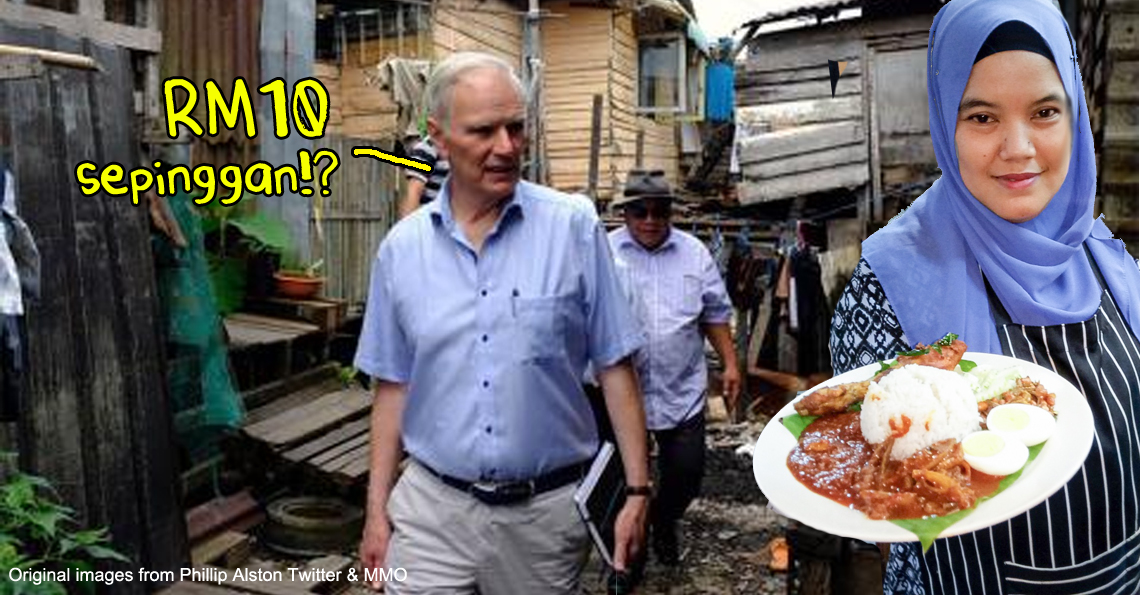A lot of retired soldiers in Malaysia end up poor… but how come?
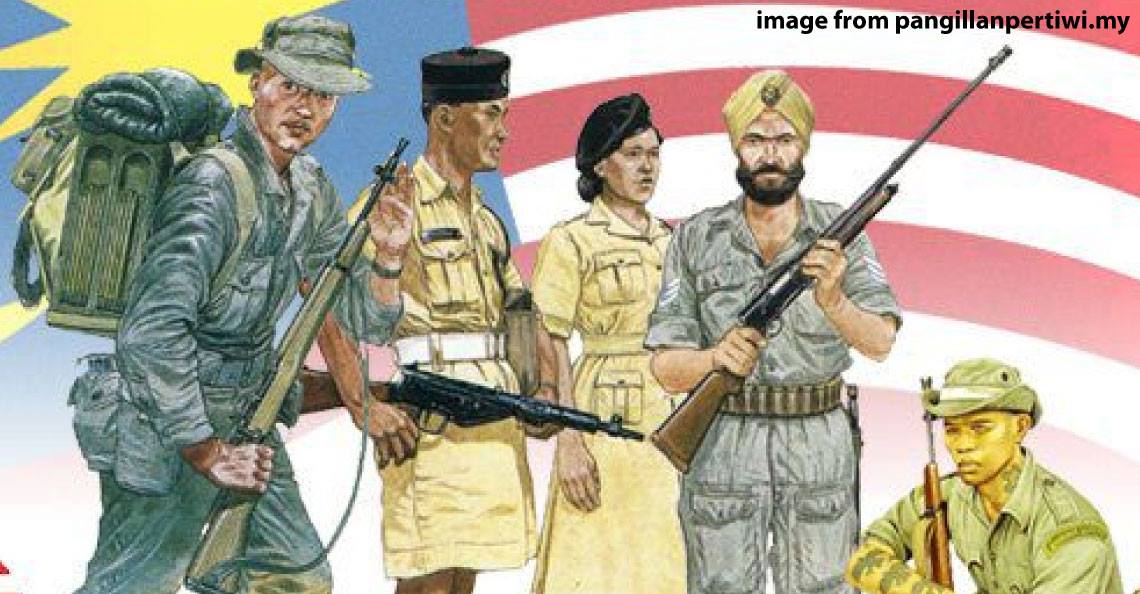
- 4.7KShares
- Facebook4.5K
- Twitter4
- LinkedIn17
- Email24
- WhatsApp53
Selamat Hari Pahlawan from us at Cilisos!
If you’ve never heard of it before, Hari Pahlawan, or Heroes’ Day in English is a day to remember the service and sacrifice of the people who died protecting Malaysia’s peace and sovereignty. It’s not a well-known celebration in Malaysia, probably because the actual celebrations are closed events, attended only by members of the police and the army.
The exact celebrations may vary each year, but essentially it begins with lowering the Jalur Gemilang, with the Last Post playing in the background as attendees reflect on the sacrifice of the fallen. There may be a speech or two, which may or may not be followed by parades, pantomimes, poetry reading and other performances by the forces, according to the year’s theme.
Altogether, it’s a celebration that instills patriotism and a day to remember the people who have fought and perished for the peace that we have now. But what about the survivors? Every so often we may encounter headlines such as “60% of armed forces veterans are poor” and “Former soldiers requesting a pension raise demand to see the Agong“. Are we really doing a great job in honoring them?
To answer that question, Cilisos spoke to Captain (Rtd) Wan Hock Leong, who was formerly in the Rejimen Semboyan Diraja (Malaysian Signals Regiment) for 10 years, as well as Ismail Abidin, the President of the recently formed Non-Pensionable Malaysian Armed Forces Veterans Association (PVATTBM) to see their views on the state of veterans in today’s Malaysia.
But first things first…
What qualifies someone to be a veteran?

While the word ‘veteran’ had been thrown around a lot these days, Act 740, otherwise known as the Veterans Act 2012 defines a veteran as any Malaysian citizen who has served full time and haven’t been retired or discharged from service due to misconduct, and was a member of any of these five Forces:
- regular forces of the Malaysian Armed Forces
- volunteer forces mobilized full time by the MAF regardless of how long their service is
- Force 136 members
- British Force members who served in either Malaya, Malaysia or Singapore
- The Sarawak Rangers
In Malaysia, the body taking care of veterans is chiefly the Jabatan Hal Ehwal Veteran, or JHEV for short. Officially operational since the first day of 2001, JHEV’s main objective is to assist the veterans in improving their socioeconomic statuses after leaving the force. This is done mainly through planning and establishing policies, training and helping the veterans in getting another job or in starting a business, looking at the problems arising from their retirement benefits such as payment and medical help, and educating the public on veterans’ contribution and sacrifices.
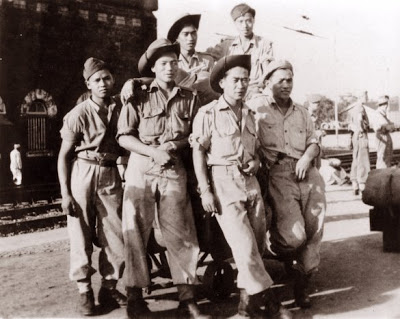
Generally, veterans are entitled to some benefits, such as a gratuity payment, free medical treatment, and pension for some (more on that later). However, things aren’t always sunny for the veterans.
A lot of veterans have financial challenges
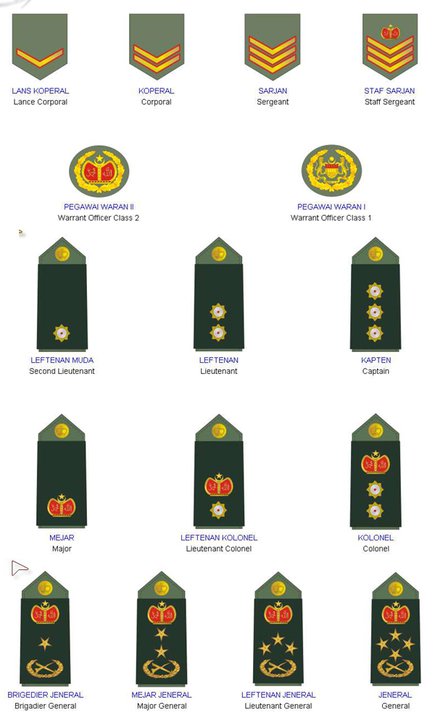
When talking about the financial challenges of veterans, the first thing that people should know is that not all veterans receive pensions. Basically, veterans (as well as active members of the force) can be classified into two: the officers and the other ranks (Lain-lain Pangkat, or LLP for short). The LLP consists of ranks from Private to Warrant Officer I, and ranks higher than that are considered officers.
According to the JHEV website, the pensions and benefits for these two groups are a bit different. Bear in mind that the Malay and English versions of the same page had some differences, so we’re going with the Malay version.
Excluding cases of retirement due to medical reasons, officer veterans are eligible for pension once they have served a minimum of ten years. LLPs, on the other hand, are only eligible after 21 years of service. As Ismail Abidin had explained it,
“There are those who served under a contract, which can be either 10, 13, 15 and 18 years of service. If they didn’t extend their contracts to more than 21 years, they won’t get pension. If they want pension, they have to keep refreshing their contracts until they have served for at least 21 years,” – Ismail Abidin, translated from Malay.
Ismail had further stated that a majority of these non-pensionable veterans live in extreme poverty, with some not even having a home of their own. In fact, a 2012 report by the Borneo Post puts the number of veterans in Sarawak living below the poverty line to be 13,550, which is 60% of all ex-servicemen residing in Sarawak. That number was comprised solely of non-pensionable veterans.
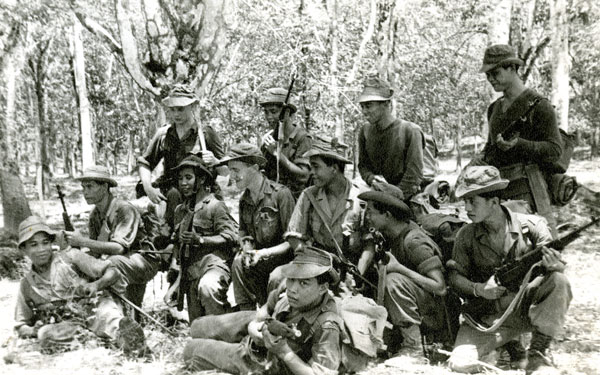
Those who do receive pensions aren’t exactly swanning around in Lamborghinis, either. Captain Wan reveals that for ordinary soldiers, especially those who retired as privates, corporals and sergeants, surviving in today’s economy can prove to be quite challenging. The pension can be based on their previous salary, which for some was the rate from 40 to 50 years ago.
“Of course, along the way, the government will review the salary of the existing or serving members of the armed forces. But when it came to the pensions of those ex-servicemen, even though they may review the salary, if the basic salary itself that was given a long time ago to the soldiers is used to calculate the pension, it’s still not much,” – Captain Wan, for Cilisos.
For the sake of comparison, Ismail revealed to us that in the 1970s, the monthly pay for a corporal was somewhere around RM735, and sergeants can earn RM800 monthly. Today, corporals and sergeants may earn around RM2,000 to RM3,000 monthly. To calculate the ex-corporals’ and ex-sergeants’ pensions today based on their pay at that time would not give enough to live on today.
The government have tried doing something about this, for example, raising the pension rates back in 2013 and setting the minimum pension amount to RM820 a month. However, as the Deputy Minister of Defense Datuk Abdul Rahim Bakri had said back then, to adjust the pension rates for armed force veterans would require adjusting the whole public service’s pension rates as well, and that will require massive amounts of funding.
According to Captain Wan, finding a job can also be a challenge for veterans, especially LLPs who retired late in life, in their 40s or 50s. Had they became soldiers early in life, these veterans may not have other skills to get them careers outside the security industry. Furthermore, careers in the security industry may not bring in enough money to survive on, especially late in life. However, Captain Wan had felt that it’s great that medical treatment is free for the veterans, as medical costs can actually take a big chunk out of their pensions, if any.
Thankfully, there are people who ensure that veterans don’t have to face all these problems alone.
Veterans are looking out for each other, through veteran associations
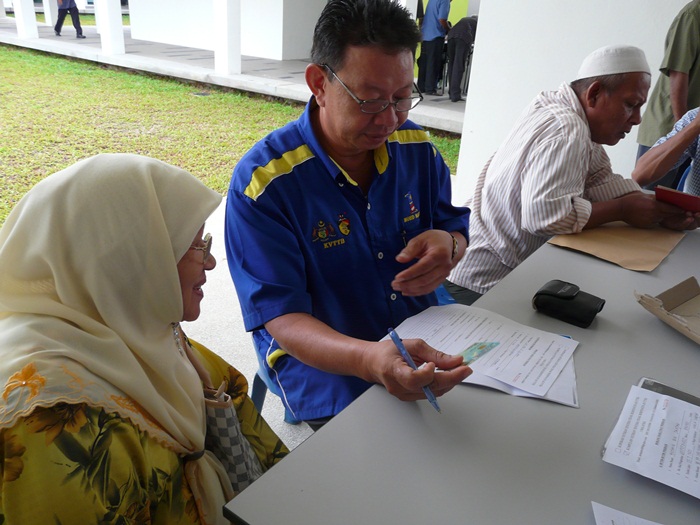
As long as an ex-servicemen fills all the criteria of a veteran as stipulated above, he or she may want to consider joining a veteran’s association. There are a lot of veteran associations out there, established either by location, race, former regiment, status or basically any criteria you can think of, and a veteran may be member of more than one veteran association.
For example, Captain Wan currently holds membership with three different veteran associations: the Retired Army Force Officers Association (RAFOC), the Malaysian Army Chinese Veterans Association (MACVA), and the Persatuan Veteran Rejimen Semboyan Diraja Malaysia. Ismail Abidin, on the other hand, founded the Non-Pensionable Malaysian Armed Forces Veterans Association (PVATTBM) earlier this year.
So why would a veteran join an association? It’s one way for veterans to keep track of each other and do what they can to help members in need. Captain Wan divulged for example, the Rejimen Semboyan Veteran Association had their members visit ill ex-semboyan members at their homes and the hospitals, sent delegations to the funerals of their members, and try to help out their members’ families when they can.
However, even associations have their limits.
“…if their families are in dire straits, we try to help out in some ways, sometimes financially as well… we do, but how much can we do? We cannot do that much, because we also have limited funds.” – Captain Wan.
While most veteran associations have their own way of collecting funds, the Tabung Hari Pahlawan is currently an ongoing campaign to raise money for a veteran’s association called the Persatuan Veteran Angkatan Tentera Malaysia, for which membership is basically open to any sort of veteran there is.
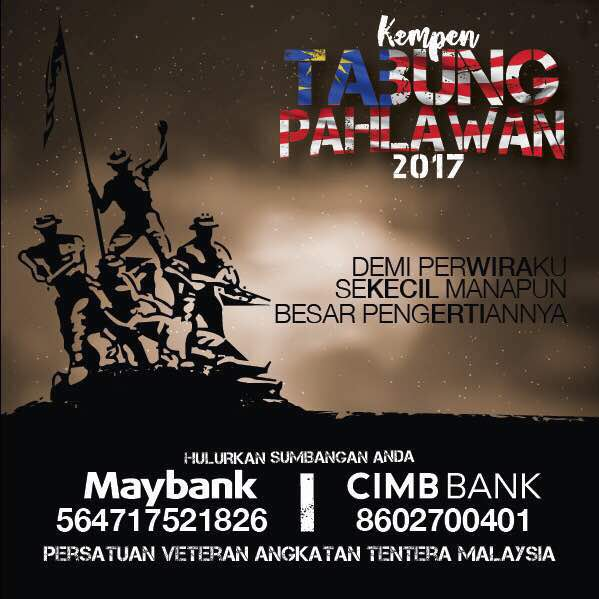
Fund problems aside, there is also the problem of getting people to join these veteran associations. Due to the PVATTBM being so recently formed, Ismail had stated that the immediate objective for the association now is to find as many non-pensionable veterans as possible and have them registered. This will make it easier for the JHEV to provide assistance to them later on.
However, as estimated by Ismail, of the 350,000 non-pensionable veterans in Malaysia, so far they have only managed to get 50,000 people to join since January. For the Sarawak non-pensionable veterans mentioned earlier, aside from ex-servicemen not interested in registering due to not seeing any benefits from it, the problem faced by JHEV was in locating the veterans themselves.
“One of the problems encountered in locating the veterans is that most of them are residing in the deep rural and interior areas which are hard to reach. Accessibility to such areas is our main hurdle due to limited number of JHEV staff in the state.” – Lt Col Monday Juhid, JHEV’s Sarawak branch director for the Borneo Post.
The management of veterans may not be perfect, but there are efforts to improve that
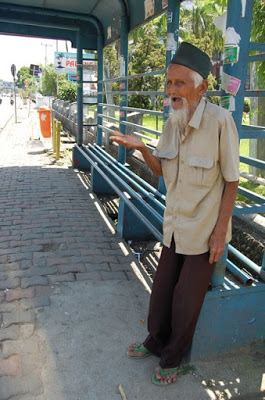
A lot of veterans, and not just in Malaysia, pretty much face the same problems of poverty and unemployment. In Indonesia, for example, there is the story of Pak Anwar, an 94-year-old veteran who made a living by begging for the past 10 years, even though he was once a lieutenant and can speak 3 languages. Or Pak Tarmidi, an 88-year-old veteran who fell violently ill and refused to be taken to a hospital since he knew he won’t be able to afford the healthcare.
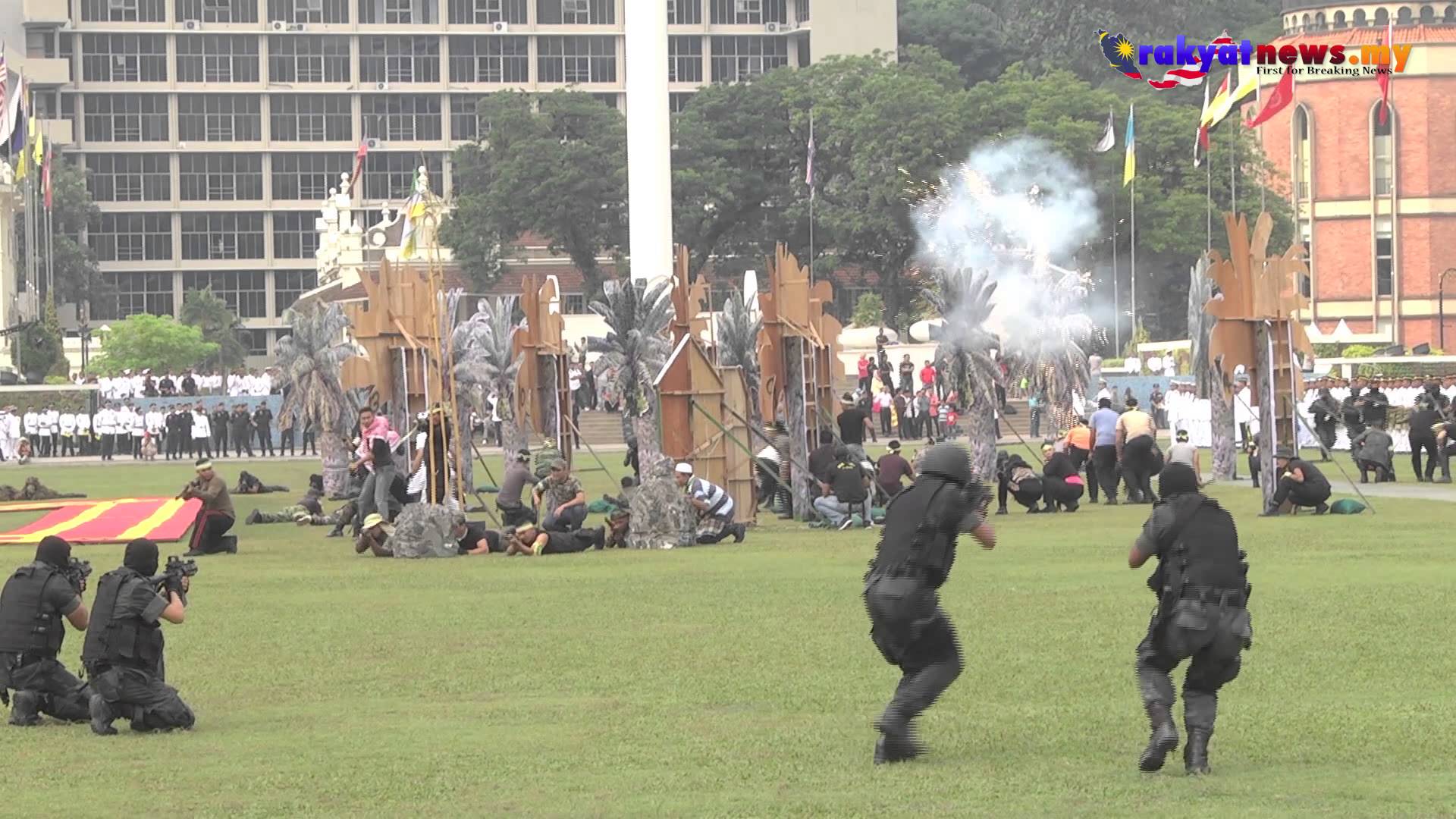
Judging by news stories, it can’t be denied that there has been efforts to improve the way veterans and their issues were managed in recent years. Last year, for example, JHEV made a deal with OratisRX Sdn Bhd for them to manage the medicine and medical supplies for veterans. Previously, some veterans had to pay for certain medicine with their own money up front before going over to the JHEV and claiming the cost there. This can be quite a burden for some, as medicine can get very expensive.
With the deal in place, veterans supposedly won’t have to deal with claiming money for their medicine anymore, as OratisRX would have been handling all that since July last year. However, even if one problem was solved, there were many more waiting in line. Ismail stated that a good first step in resolving all those problems would be by organizing the veterans through the various veteran associations. This can ensure that no veteran is left behind, and makes it easier to let veterans know what their rights are and how to claim them.
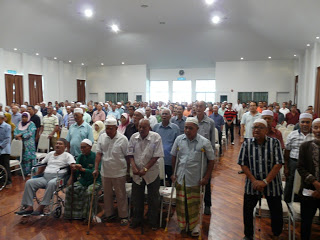
However, locating the veterans still remains a big task. So far, Ismail Abidin had said that the PVATTBM are trying to get people to join through roadshows in various states.
“I implore them to register with the association in their respective states or call me at 019-4228455,” – Ismail Abidin, for the Borneo Post.
For the problem of locating veterans after they left the force, Captain Wan felt that a preemptive measure may be a solution. Since the JHEV is linked with the armed forces (JHEV is under the administration of the Ministry of Defence), it should not be a hard thing to get the details of servicemen who would soon be leaving the armed forces.
“…before they leave the armed forces, you can already get all their data, their telephone numbers, their addresses, all of these. Why must you wait for these people to register? It can be done proactively before they leave the force. Everybody knows when their ROD is, the Run Out Date is. If five thousand leaves the armed forces at one particular period, they will end up with five thousand names and details of these people.” – Captain Wan, for Cilisos.
Captain Wan felt that there is a need to move on from the old school of thought to finding new ways of doing things, especially since a lot of things can be done over the Internet these days. He had also stressed the importance of finding the root cause of a problem first, to avoid coming up with the wrong remedial action.
All things considered, Captain Wan brings up an interesting point on the retired veterans, particularly the LLPs who retired late in life.
“I’m worried about how they are going to survive, because they’re left on their own, and if they have families and children that come back and help them, thank god. But not all of them have children who come back and help them. Who will help them? They will be stranded somewhere on their own. And yet at one stage of their life they sacrificed their lives for the country. So in that sense I feel sad for them la.” – Captain Wan, for Cilisos.
- 4.7KShares
- Facebook4.5K
- Twitter4
- LinkedIn17
- Email24
- WhatsApp53

